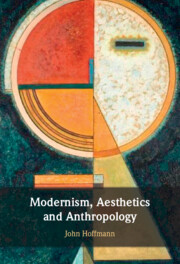Coda
Eusynoptos
Published online by Cambridge University Press: 09 January 2025
Summary
“Eusynoptos” takes its title from the Aristotelian notion of εὐσύνοπτος: “easily taken in at a glance.” In the Politics, Aristotle maintains that the size of a city is strictly delimited by the number of citizens that can be visually comprehended at a glance. But what if a machine were to augment the sensory capacities of humans? Could a political entity then be expanded beyond its natural limits? Confronting these questions in his film theory, Walter Benjamin modernizes eusynoptos by showing how the movie camera records large masses of individuals in a manner impossible for the naked eye. Informed by Benjamin’s idiosyncratic Marxism, the coda examines the reception of Nazi propaganda films in the United States in order to develop a critical theory of collective spectatorship that promotes a rational politics, thereby pressing back on an irrationalist tradition in aesthetics leading from Schelling and Schopenhauer through Nietzsche to fascism.
- Type
- Chapter
- Information
- Modernism, Aesthetics and Anthropology , pp. 248 - 262Publisher: Cambridge University PressPrint publication year: 2025

